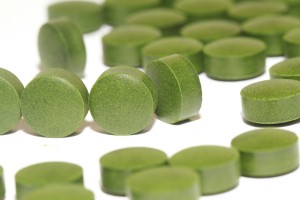March 31, 2015
This Monday, New York Attorney General Eric T. Schneiderman called off an investigation involving herbal supplements manufactured, marketed and sold by health and nutrition retailer GNC Corporation (“GNC”). The parties’ groundbreaking agreement requires GNC to implement a series of novel quality control standards for its store-brand herbal supplements.
Will GNC’s agreement have far-reaching implications for manufacturers, retailers and marketers of dietary supplements?
New York’s Herbal Supplement Investigation
In February of this year, the New York AG’s Office revealed the initial findings of its investigation into herbal supplements sold and marketed by GNC, Target, Walmart and Walgreens, respectively. The regulator’s inquiry focused on the practice of substituting contaminants and fillers in the place of authentic product – potential violations of New York’s deceptive practices and advertising regulations – and found that all four retailers were allegedly selling store-brand herbal supplement products in New York that could not be verified to contain the labeled substance at all and/or contained ingredients not listed on the labels.
The Attorney General’s Office hired an expert in DNA barcoding technology to test six GNC supplements, including Gingko Biloba and Ginseng. Tests revealed that the GNC products’ DNA matched their labels only 22% of the time, and samples allegedly contained contaminants, such as asparagus, rice, legumes and houseplant material.
According to the Attorney General’s Office, GNC fully cooperated with the investigation and removed the suspect products from its New York stores. The agency found no evidence that GNC violated Food and Drug Administration (“FDA”) rules related to the production of supplements. However, the New York Attorney General’s Office expressed concerns about the adequacy of FDA regulations for herbal supplements, which do not undergo the same rigorous scrutiny and evaluation process as is required before drugs may be sold to the public.
GNC Reaches Agreement with New York Attorney General
Pursuant to its letter agreement with GNC, which was signed last Friday and announced this week, the Office of the Attorney General will discontinue its investigation involving the authenticity, purity and labeling of GNC’s Herbal Plus brand products for a period of three years. In exchange, GNC has agreed to implement a number of initiatives to protect consumers, including:
- Establishing authentication standards within 18 months that utilize DNA barcoding technology for GNC-branded herbal supplements;
- Requiring its suppliers to implement randomized allergen testing protocols for common allergens (such as milk, eggs, tree nuts and shellfish);
- Displaying prominent signs in GNC stores that explain the difference between whole herbs and extracts;
- Adding its DNA barcodes and scientific barcoding methods to a publicly accessible database within two years; and
- Filing a semi-annual report with the New York Attorney General detailing its compliance with the foregoing heightened procedures.
The New York AG has called the agreement the first of its kind in the nation to require testing standards for herbal supplements that exceed current FDA requirements.
Implications for Supplement Providers
Over the course of its investigation, the Attorney General’s Office continuously stressed that the mislabeling, contamination and/or false advertising of consumer products is illegal under New York State law. It is foreseeable that the Attorney General will continue to zealously pursue alleged violators of these regulations. Other states, the FDA and the Federal Trade Commission (“FTC”) could also follow suit. As stressed by Attorney General Schneiderman, “I urge all herbal supplements manufacturers and retailers to join GNC in working with my office to increase transparency and put the safety of their customers first.”
GNC’s agreement with the New York Attorney General should pique the interest of every company that is operating in the dietary supplement space. If you are a dietary supplement provider, a marketer of such products, or if you face regulatory investigation relating to your sales or marketing practices, please e-mail us at info@kleinmoynihan.com or call us at (212) 246-0900.
The material contained herein is provided for informational purposes only and is not legal advice, nor is it a substitute for obtaining legal advice from an attorney. Each situation is unique, and you should not act or rely on any information contained herein without seeking the advice of an experienced attorney.
Attorney Advertising
Related Blog Posts:
Dietary Supplement Provider Sued for Deceptive Marketing




